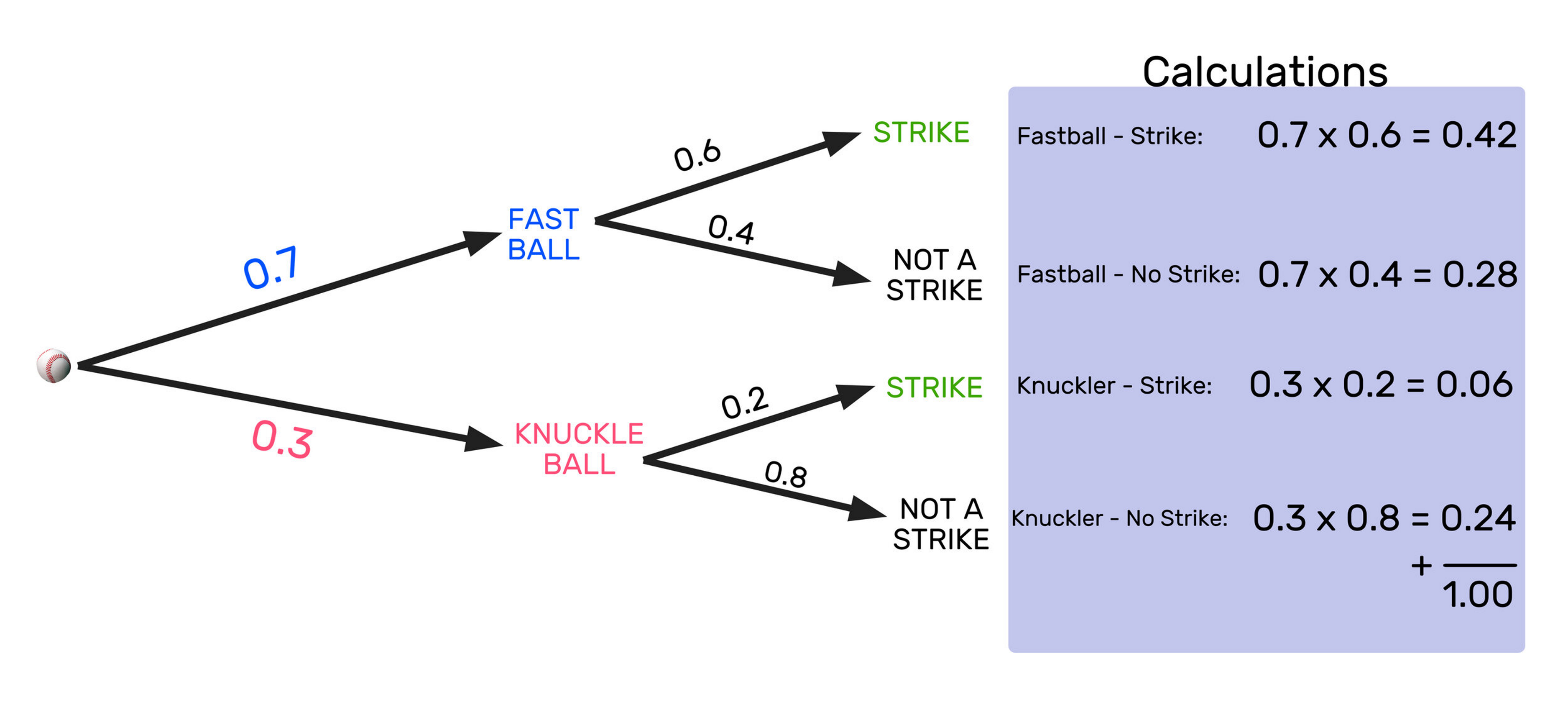CH 2 - sequential Experiments
1/12
There's no tags or description
Looks like no tags are added yet.
Name | Mastery | Learn | Test | Matching | Spaced | Call with Kai |
|---|
No study sessions yet.
13 Terms
Tree Diagrams
Display outcomes of subexperiments in sequential experiments. Branch labels = probabilities/conditional probabilities. Probability of full outcome = product of branch probabilities.

Probability of leaf in tree
Multiply probabilities along branches from root to leaf.
Counting Methods
Finding number of possible outcomes without listing them. ( Permutations, Combinations)
Multiplication Rule
Total outcomes = (outcomes of first) × (outcomes of second).
Permutation with Replacement
Order matters, replacement allowed. Formula: m^k.
Permutation without Replacement
Order matters, no replacement. npr on calculator

Combination without Replacement
Order does not matter, no replacement. NCR on calculator

Combination with Replacement
Order does not matter, replacement allowed. Rarely used.
(n)k
Number of k-permutations of n distinguishable objects = n! / (n-k)!.
Sampling with Replacement
Leads to independent trials.
Independent Trials
Outcome of one trial does not affect probabilities of next (e.g., coin flips, dice rolls).
Binary Trials
Trials with two outcomes (success/failure). Sample space = {0,1} or {S,F}.
Binomial Probability
If n trials and success probability = p, probability of k successes: (n choose k) * p^k * (1-p)^(n-k).